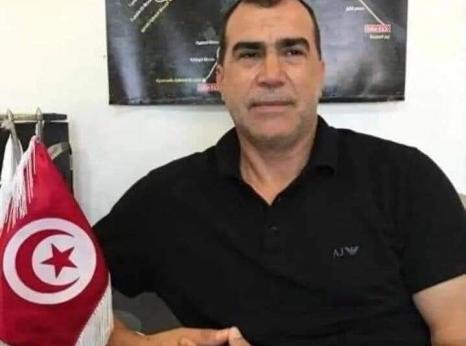Tunisia: Ex-Minister And Official Arbitrarily Detained

On 25 July 2021, President Kais Saied suspended parliament and dismissed Prime Minister Hichem Mechichi, citing emergency powers under Article 80 of the Constitution. In September 2021, he issued Decree-Law 117, which suspended most of the Constitution; granting him total control of most aspects of governance, including the right to legislate through decrees and gave him supreme executive power. Since then, the authorities have imposed several repressive measures against judges, senior states officials and parliamentarians such as arbitrary house arrest and travel bans. There has also been an increasing pattern of referral of civilians, including opposition politicians and critics of the President, before military courts.
Noureddine Bhiri (63) is a former Minister of Justice who served from 2011 to 2013 in a coalition government following the ouster of president Zine el Abidine Ben Ali and elections of a National Constituent Assembly. A lawyer and member of the Tunisian bar, he is also the vice-president of Ennahdha, one of Tunisia's most powerful political parties and heads the party's group in parliament. The party has criticised President Saied's concentration of powers since the July 2021 suspension of parliament, calling it a "coup".
Noureddine Bhiri suffers from diabetes and high blood pressure, and normally takes regular medication for both ailments. His health is at risk, as he is refusing to take food, water or medicine to protest his arbitrary detention and is nourished only through intravenous fluids. Fathi Beldi (55) is a former official at the Interior Ministry in the General Department in charge of borders and foreign nationals. Several media outlets reported in November 2021 that the current Interior Minister Taoufik Charfeddine, forced several officials into forced retirement, among them Fathi Beldi. Lawyers for both Noureddine Bhiri and Fathi Beldi have attempted to determine whether judicial authorities had ordered their detention or sought to prosecute them for recognizable offences under the law but have found no evidence to this effect.
The authorities allowed the head of the Tunisian bar association to visit Noureddine Bhiri in his place of detention on 31 December, even though he later declared in an a radio interview that he could not determine the location. Members of the Tunisia's National Authority for the Prevention of Torture (INPT) and representatives from the Tunisia office of the UN's Office of the High Commissioner for Human rights were also allowed to visit both Noureddine Bhiri and Fathi Beldi in detention.
On 3 January, the Interior Minister said in a press conference, referring apparently to Noureddine Bhiri and Fathi Beldi, that the two men had been arrested under Article 5 of the 1978 presidential decree. Article 5 grants the Interior Minister the right to order "forced internment" or house arrests against a person who represents a danger to security and public order. The Interior Minister went on to say that the two men were involved in an affair linked to terrorism for "the illegal issuance" of passports to non-Tunisians in 2013, while Noureddine Bhiri was Justice Minister, and the Interior Ministry has detained them because the judicial authorities had thus far not ordered their arrest. On 4 January, the office of the general prosecutor of the first instance tribunal in Tunis stated that the court had opened an investigation into the matter on 24 December, without giving further details.
Under international law, and most specifically the International Covenant on Civil and Political Rights (ICCPR), to which Tunisia is a state party, certain human rights cannot be restricted even in times of emergency. These include the right to life, the prohibition of torture and other ill-treatment, the prohibition of discrimination, and freedom of religion, as well as the right to a fair trial and from the prohibition of arbitrary detention, in particular the right of every detainee to have their detention reviewed by an independent tribunal.
Keeping people in secret or otherwise undisclosed places of detention violates the right to liberty and the prohibition of arbitrary arrest or detention, enshrined in Article 9 of the International Covenant on Civil and Political Rights. As people held in undisclosed places of detention are held outside the reach of the law, no procedure established by law is being applied to them as required by Article 9 and 14 of the Covenant, they have not been formally informed of the charges against them or had the chance to examine any evidence to support those charges to enable them to prepare an effective defense and challenge their detention. Furthermore, Article 17 (1) of the Convention for the Protection of All Persons from Enforced Disappearance states that no one shall be held in secret detention and calls on states to ensure that national legislation guarantees that any person deprived of liberty shall be held solely in officially recognized and supervised places of detention.